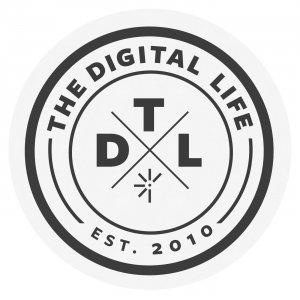The Digital Life

Labor and the Gig Economy
Jon: Welcome to episode 173 of The Digital Life, a show about our insights into the future of design and technology. I'm your host Jon Follett, and with me is Founder and Co-Host Dirk Knemeyer.
Dirk: Hey Jon.
Jon: Hey Dirk. For the podcast this week, let's discuss the gig economy and the contentious labor disputes that are beginning to arise as a result of this new way of working. Actually, it's not really a new way of working. I'm sure there always been freelancers and people who work from job to job, but now there's an increase in the number of folks who work this way, as opposed to being W2 employees with all of the protections that that classification affords. The sort of new gig economy is epitomized by the quote "Uberization" of everything, right? So now you can not only get a ride somewhere, but you can get various tasks and chores done for you, and companies can take advantage of this style of labor as they build out these gargantuan platforms and make profits on the results of these platforms. Does this distributed, just in time work mean that protections for workers are gone forever?
Certainly, it's hard for Uber drivers to organize, and even to get recognized as having the right to organize, frankly. Or, is there hope for new models that we could use to fairly compensate people. Of course there's plenty of discussion on this topic, and I think we're going to way in on this a little bit today. Dirk, what's your take on this rise in the gig economy and sort of ways that we can approach thinking about labor rights for this class of worker?
Dirk: I think the gig economy in the most generic sense is logical. I think something that's similar to the gig economy is how we should function as a society. I think the Sturm und Drang of the situation, all the conflict around the situation is just focused on completely the wrong problem. People who have been listening to me for a number of years, and for me this goes back to 1993, know that I think the core problem is capitalism. We're having all of this churn and angst around worker rights and the conflicts of the gig economy, yada, yada, yada. That's not the problem. The problem is that we have a very lightly regulated free market that incentivizes people to act selfishly and allows the creation of these sociopathic corporations that act destructively, and those are the underpinnings of the system. We shouldn't be at all surprised that there's all kinds of waste and human pain and loss coming out of that. That's where the things really lie.
I think we should have in our society every citizen in the country should be provided some baseline existence that they don't have to part of an ongoing 40 hour, 60 hour week cycle to have, right? I wrote about this a number of years ago, but the idea for the model is, if you're a citizen and we're in the United States, let's call it the United States, if you're a citizen in the United States there's a minimum baseline that you should have, and you should need to work for it. That minimum baseline would be something like a certain level of modest housing, a certain level of modest food and beverage. I would have electricity and internet access be part of that baseline. To create all of the things needed in the baseline, that's quantifiable, like the amount of human effort and human capital required to provide for everyone can be tracked. We should be tracking that, and we should have people having to work their fair share of providing for everyone.
Now, that might sound like just a different type of capitalism, but the trick is to provide this modest baseline for everyone wouldn't have people working 40 hours a week. It would have people working 8 hours a week or 12 hours a week, right, in order to work their fair share. They would have the rest of their lives to decide for themselves. The example I like to use is the truffles example. If you really want truffles go ahead out there and gather truffles. Start a quote,






 Visit Podcast Website
Visit Podcast Website RSS Podcast Feed
RSS Podcast Feed Subscribe
Subscribe
 Add to MyCast
Add to MyCast